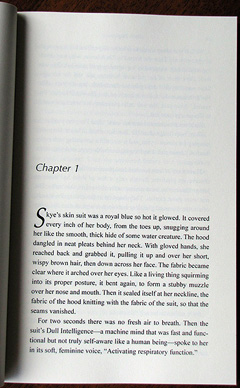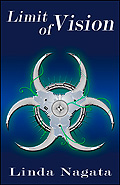Ebook pricing and sales have been hot topics lately. For those not following the issue, here’s a quick summary:
The top end: mostly books by traditional publishers; usually $9.99. Sometimes more for big new releases; sometimes less for older titles.
The middle: lots of midlist writers who are republishing their backlist, plus confident newer writers: $2.99 – $5.99
The discounters: novels priced at 99-cents. Yes, you read that right.
Disclosure: as I write this, my books are priced between $2.99 and $5.95. I’ve shifted the pricing around and haven’t noticed any change whatsoever in rate of sales, which continue at a slow trickle. This makes sense to me, personally, because of who I am as a reader, and here’s why:
I’ve paid $9.99 for several books and been happy to do it because I’ve gotten good books out of it, and a book will keep me entertained much longer than a movie. I haven’t yet been persuaded to pay more than $9.99, but at this price point, the limiting factor is not so much the cost, but my time. Offer me a 99-cent ebook and my first suspicion is that you’re asking me to use my very limited reading time to read crap.
(I’m not saying that a 99-cent ebook IS crap. I’m saying that it’s natural to suspect that it is.)
Well, I don’t want to read crap, even if it’s free. I’d rather pay to get something that isn’t going to annoy, irritate, or bore me. So it wouldn’t matter to me particularly if I paid $4.99 or $9.99 for an ebook, if the sample chapters showed it to be good.
But one thing I’ve learned in life is that I am not very representative of “most people” (whatever that means). Lots of 99-cent ebooks have sold well enough to bring in a lively income to their publishers, sometimes an eye-popping income.
And once a book starts selling on Amazon, the Amazon algorithms kick in, promoting the book and generating more sales.
So a lot of indie authors drop their price to 99-cents to try to generate sales that will kick their book into the reach of the promotional algorithms. Fair enough.
Today I encountered a new strategy: pricing your book at 99-cents and then giving it away to people who are willing to accept it. Assuming that Amazon’s algorithms do not discriminate against multiple purchases of the same book from one account (and I have no idea whether this is the case or not) this is a very cheap and efficient way of buying your way onto a bestseller list. Imagine it: $500 will buy you 500 sales, and you’ll eventually get back 35% of that as a royalty. And 500 sales over a short period of time will get you onto a lot of lists. And once you’re on the list, people who have never heard of you will be buying your book. And if they like what they read they might go back and buy your more expensive books, and if they don’t, so what? You haven’t lost anything, because they would never have bought your books anyway.
Given the competition in ebooks, by tomorrow tens of thousands of authors will probably be giving their books away. I’m very, very tempted to try this myself.
Why am I hesitating? Pride, I guess, but really, it’s no different than giving away copies of print books to generate buzz.
So what do you think? Is this a good idea? And in the long term, is there really a future in this ebook business?
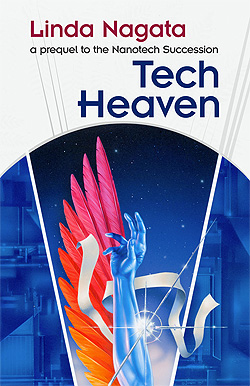 One of the coolest things that happened to me when I sold my first novel was that Bruce Jensen was contracted to do the cover art. I was thrilled with the result, and even happier when he went on to do all four Bantam covers.
One of the coolest things that happened to me when I sold my first novel was that Bruce Jensen was contracted to do the cover art. I was thrilled with the result, and even happier when he went on to do all four Bantam covers.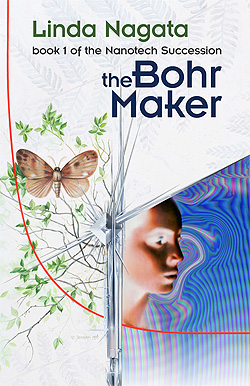
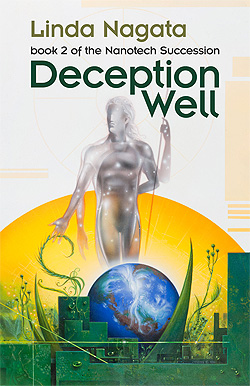
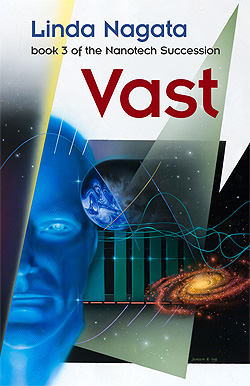










 And here’s the first one: Skye Object 3270a.
And here’s the first one: Skye Object 3270a.